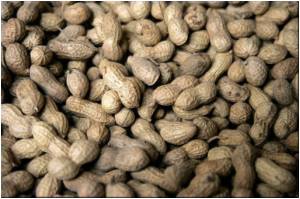
‘Genes in peanuts identified by decoding the DNA could pave the way for producing non-allergenic peanuts if the genes are altered.’
Tweet it Now
The genes were identified by decoding the DNA of peanuts. The researchers hope that the discovery will lead to increased crop productivity and nutritional value.
Peanut allergies are highly prevalent in Australia, affecting nearly 3% of the population and can cause a severe allergic response if not treated immediately.
Professor Rajeev Varshney, Research Program Director- Genetic Gains from ICRISAT and also Winthrop Research Professor with UWA's Institute of Agriculture and School of Plant Biology played a lead role in the study.
Professor Varshney, said, “The findings were an important achievement for the agricultural industry and farming community.”
"This discovery brings us that one step closer to creating peanuts that will have significant benefits globally. We will also be able to produce peanuts that have more health benefits with improved nutritional value."
Advertisement
Dr David Bergvinson, Director General of the International Crops Research Institute for the Semi-Arid Tropics, which is one of the project's partners, said: "This will provide an efficient road map for sustainable and resilient groundnut production for improved livelihoods of smallholder farmers particularly in the marginal environments of Asia and sub-Saharan Africa."
Advertisement
Source-Medindia











